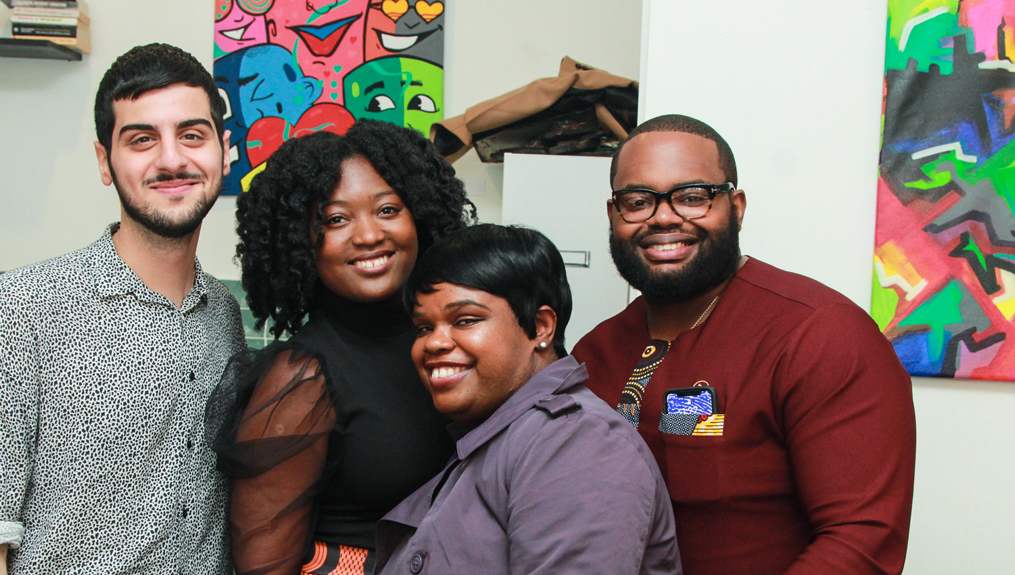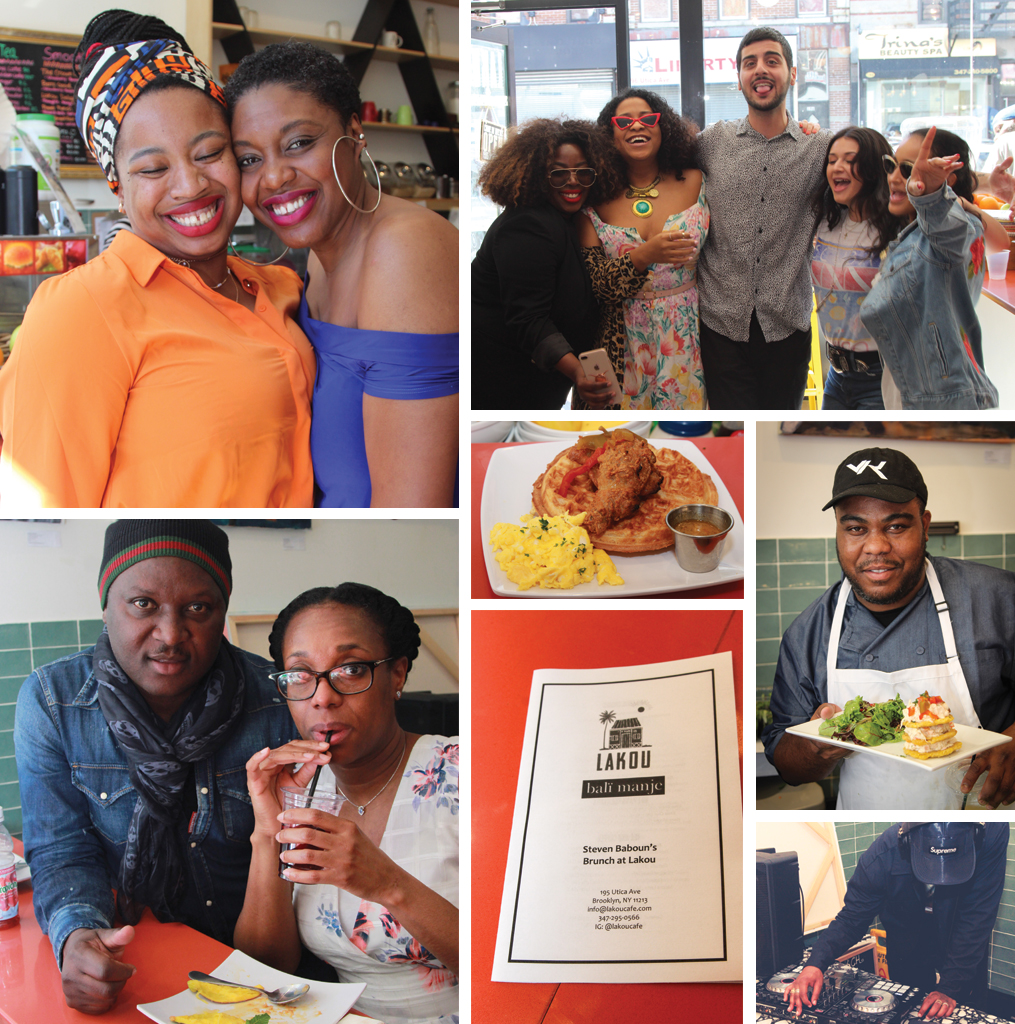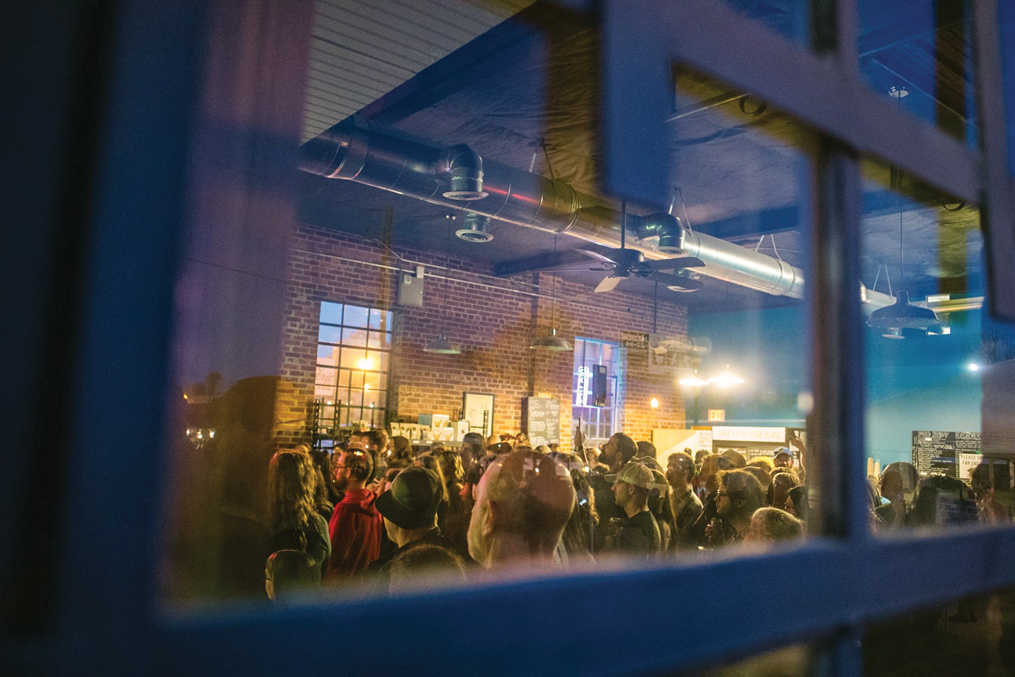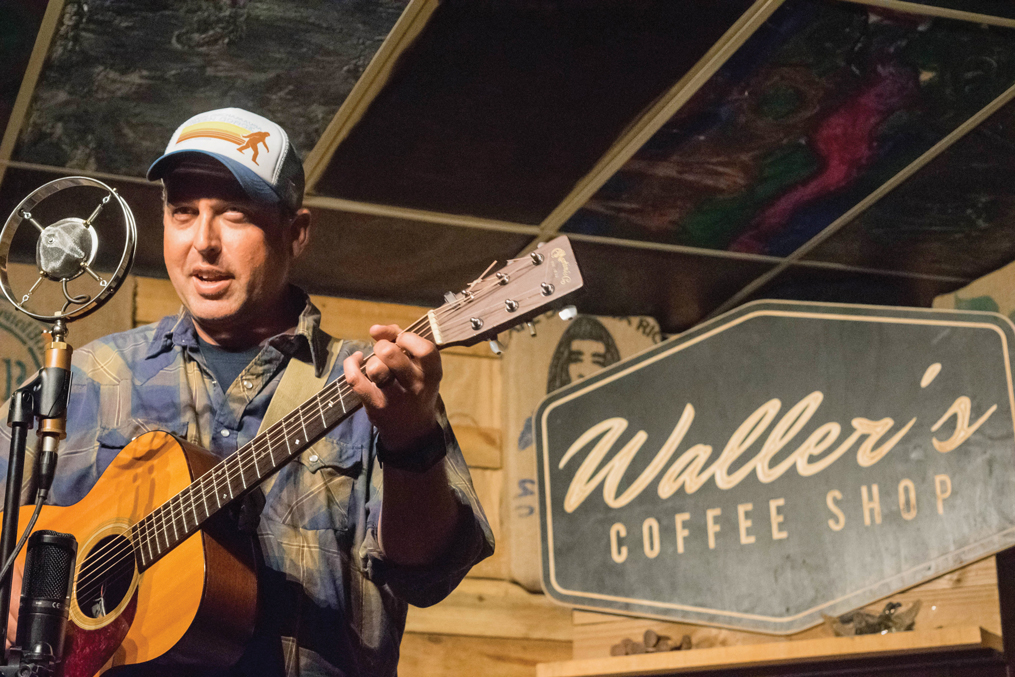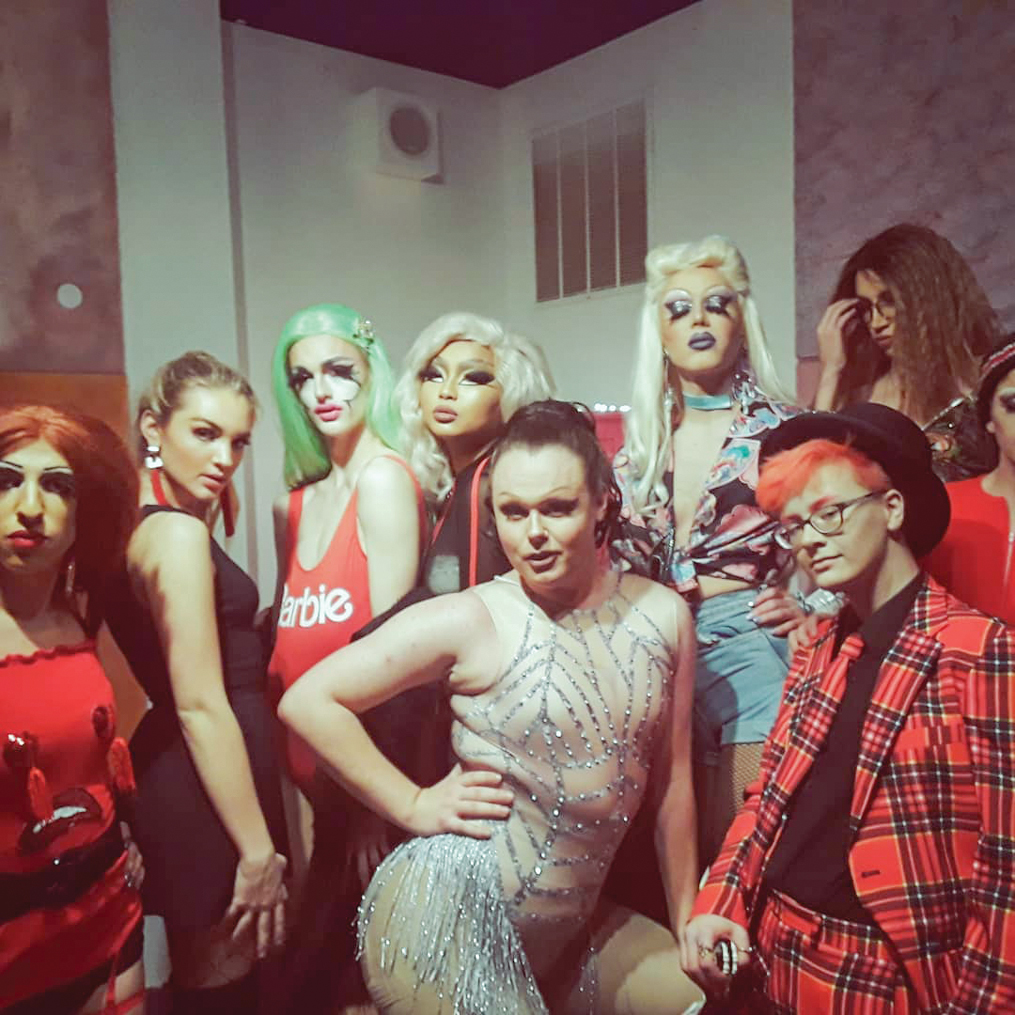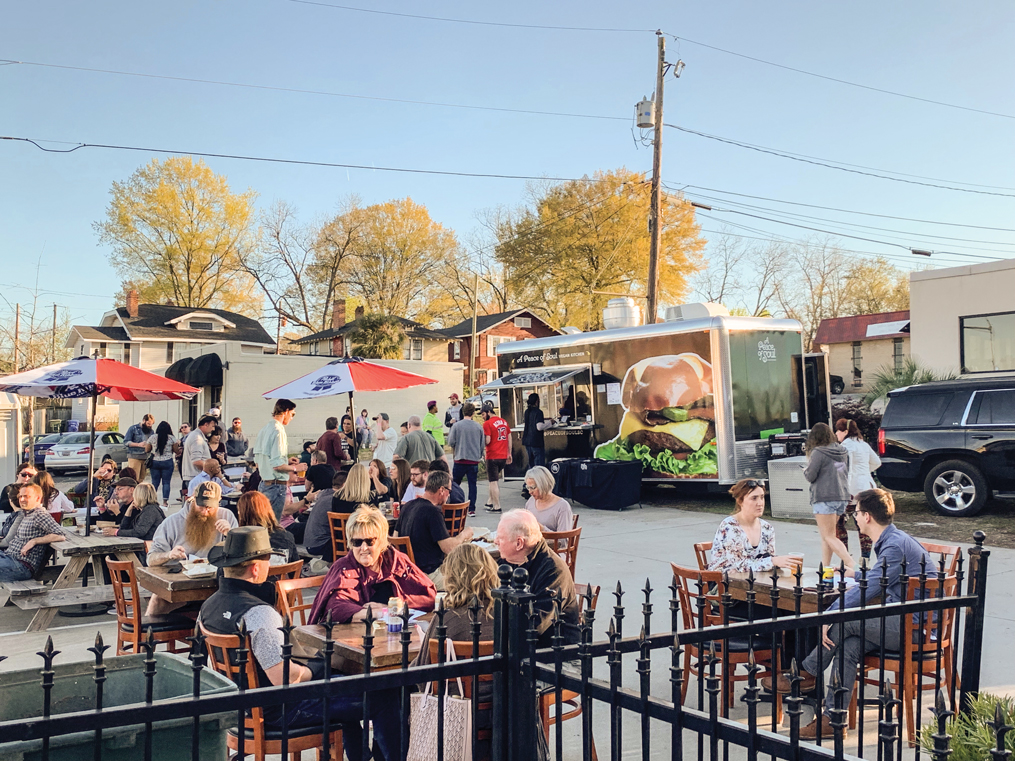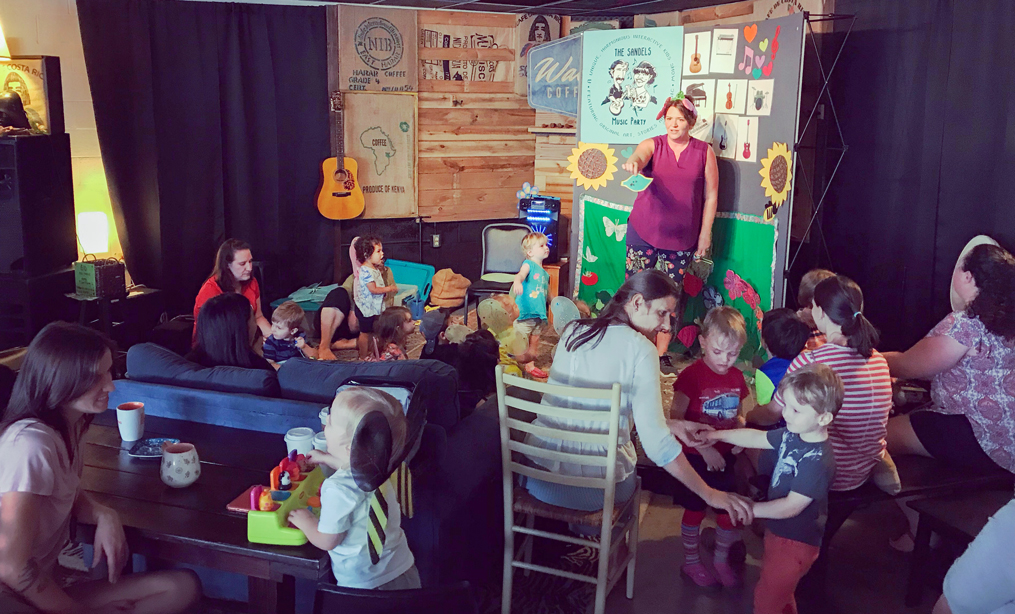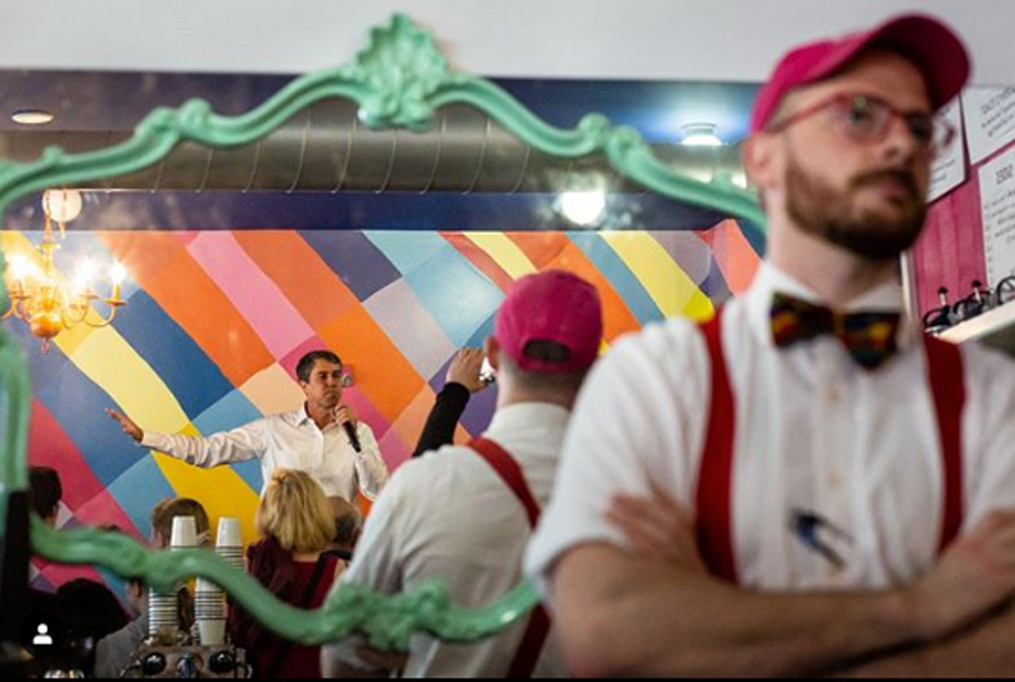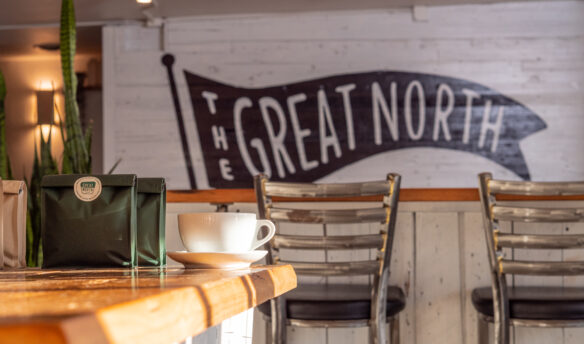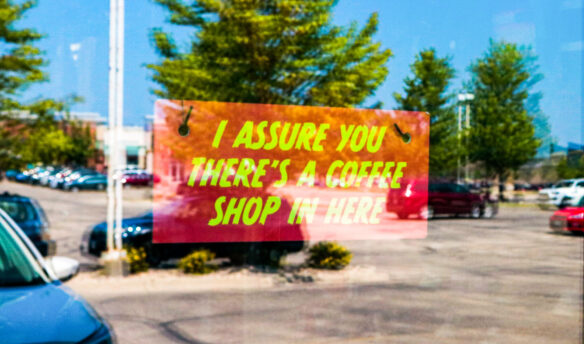Brunch event at Lakou Cafe with Humans of Haiti founder Steven Baboun (left). Photo by D&R Photography
[C]assandre Davilmar opened Lakou Cafe in Brooklyn’s Weeksville area in May 2018. Davilmar wanted the café to help build community in her neighborhood, so she named it Lakou, a Haitian-Creole word for “courtyard.”
“It’s essentially the backyard, a place where the community hangs out,” says Davilmar, whose family is from Haiti.
Lakou has proven true to its name with a varied assortment of events including brunches, self-care workshops, pop-up shops, and movie nights. Hosting events has helped Lakou not only foster community, but also boost revenue.
“Cafés typically have their busiest time of day before four o’clock because that’s when people want coffee,” says Davilmar, “so the challenge was trying to figure out how to build traffic in the evenings.”
Curiosity Coffee Bar in Columbia, South Carolina, has also reaped the benefits of a full events calendar with live music, game nights, comedy shows, and other events.
“When people wake up in the morning and choose what coffee shop they’re going to, they’ll remember that you brought one of their favorite regional bands,” says co-owner Greg Slattery. “That’s been a great way to develop a bigger customer base.”
Slattery and partner Sandra Moscato did event production for over a decade before opening a coffee shop, so live events felt like a natural fit for them. Having played in a touring band for 12 years, he also brings music connections and expertise.
Much like Slattery, Jason Waller uses his experience as a musician to produce live events at Waller’s Coffee Shop in Decatur, Georgia.
“My whole coffee shop started from a YouTube series called D.A.D. [Depression Awareness Dude] Presents,” says Waller. “I was interviewing songwriters and talking about the stigma of mental health issues and the creative process. I got about 50 videos and I wanted a place that I could do that.”
In addition to live music most days of the week, Waller’s hosts events around mental health. In September, they held a workshop for mental health caregivers and, coinciding with National Suicide Prevention Week, another on suicide prevention.
“This whole idea came at once with the coffee and the music and the community center vibe,” says Waller.
Up in Somersworth, New Hampshire, Teatotaller serves as a communal space for local youth and the queer community.
“We’ve developed a certain type of style and voice for our programming,” says owner Emmett Soldati. “We’re vibrant, colorful, and queer. We’re also a sober venue, so that makes some of our events more youth-oriented.”
A teen drag show called “After School Special” is among Teatotaller’s most popular ongoing events. They also host burlesque movie nights, “drink and draw” art events, and more.
“A lot of kids are in this space and so a lot of parents love coming to feel like they have a safe and inclusive space for their kids,” says Soldati. “It’s definitely been good for our bottom line to have explicitly queer and LGBT programming.”
Whether catering to teens in drag, indie music lovers, or film buffs, here’s how these shops plan and produce live events that draw a crowd.
Planning Events
Many cafés draw from the talents of their regulars or even their employees as they plan events.
“I like to, first off, find out what are the different talents of the people around me, getting to know our customers,” says Davilmar. “We’ll let our employees host events for free. It’s learning their talents and offering the opportunity to them.”
For instance, one of her employees has a production team that runs open mic nights around the city, including at Lakou.
Beyond customers and employees, Davilmar also looks to partner with local organizations “that have an audience that would like to attend an event at our café.” In May, Lakou partnered with Black Film Space, a collective of filmmakers dedicated to black creatives, to do a movie night and bring in the director for a talkback session.
“That’s not something I would be able to do by myself,” says Davilmar. Waller takes a similar approach to programming.
“If the community wants to do it, we try to make it happen,” he says. “Last night we had two different churches get together and sing secular pop songs all together like they were hymns.”
Many bands or solo acts contact him seeking performance space, and Waller describes the musical lineup as eclectic.
“As long as they’re good people, I don’t judge the music style or musicianship,” he says.
On the other hand, Slattery selects musical acts carefully so that customers can trust they’ll see a solid performance.
“We’ve strayed from doing open mic nights and things where there’s less organization effort and less planning required by us,” he says. “We’d rather curate the events that we have and give our customers something we think is of the same quality of the coffee we offer versus a hodgepodge.”
When possible, Slattery likes to host events outdoors, like Mobile Food Monday, when food trucks set up in the parking lot.
“People love to hang out whether they’re drinking coffee or beer,” he says. “There’s something about being outside that makes it feel more festive.”
Ashley Tomlinson founded the Toronto Coffee Community, an online directory of coffee and industry events and job listings around Toronto. Toronto Coffee Community organized the Toronto Regional Aeropress Championship for several years, but now it mainly posts outside events.
Tomlinson says pulling in different communities for an event can be highly effective.
“If you can have three or four roasters involved in an event, you have more participants,” she says. “You’re not just pulling from a particular neighborhood or a particular roaster or the employees that work for a particular roaster. You’re trying to diversify the pool of people you’re including.”
Promoting Events
Once you’ve scheduled an event, marketing and promotions is key to getting people to attend.
“Building an audience always takes time,” says Soldati. He’s found that sometimes the novelty and excitement the first time an event is offered can bring in a crowd, but subsequent iterations can have fewer attendees.
“That’s the nature of people’s attention spans,” he says. “Now you have to attract people based on their expectations.”
Lakou uses in-store advertising and its calendar of events to spread the word. The café has also collaborated with photographers or videographers to create promotional videos.
“People want to get a sense of what the vibe is going to be like,” says Davilmar.
Like many other coffee shops, Waller’s doesn’t have an advertising budget, so they lean on word of mouth. Waller creates a Facebook event page and presells tickets on Eventbrite. He also submits the full events lineup to a local monthly magazine. Encouraging performers to promote events to their audiences has helped as well.
Areas that have organizations similar to Toronto Coffee Community can also tap into that marketing opportunity.
“[Organizers] just message me and I repost or if I see it, I’ll repost,” says Tomlinson. “I try to make it a sort of one-stop shop for things happening in coffee in the city as best as I can.”
Day Of Logistics
On the day of the event, Soldati stresses the importance of following through on expectations and trying to start events on time.
“Long-term audience build and consistency is the most important thing,” he says. “If you say doors at 7, and you don’t open until 8, that’s not good. You’re building in your audience’s expectations from the get-go.”
Consistency in offering recurring events is another way to set customers’ expectations. If they know your space hosts a board game night every Tuesday or movies on the first Friday of the month, it’s easier for them to build favorite events into their own schedules.
“Consistency is the key to a successful event,” says Davilmar.
Last-minute event cancellations can happen—the host gets sick or you have to close early due to an HVAC system, for example—but try to alert customers via social media with as much notice as possible so they’re not disappointed.
While hosting events requires planning, promoting, and a lot of coordinating, Soldati says it’s rewarding, especially in small towns like his.
“More cafés need to activate more people in their community,” he says. Beyond enjoying the entertainment, Teatotaller’s customers have developed friendships with people they might not have met otherwise.
“Recognize that the audience is having an experience amongst themselves,” he adds, “beyond what’s happening onstage.”
Event Rentals
In addition to hosting public events, cafés can be the perfect space for private events like business meetings, rehearsal dinners, baby showers, and more.
Cassandre Davilmar rents out Lakou for private events. Rental clients find the space through word of mouth, Instagram, or online marketplaces like Peerspace.com. Brands using the space have included Teen Vogue, Samsung, and Instagram.
“We’ve had birthday parties, but we’ve also had more like corporate stuff like people renting it out for commercial shoots or music videos,” she says. “Our revenues have almost doubled since last year [when we opened], which has been great.”
Consider listing your café on venue directories, or start promoting your space for private events via your website or Instagram page.

